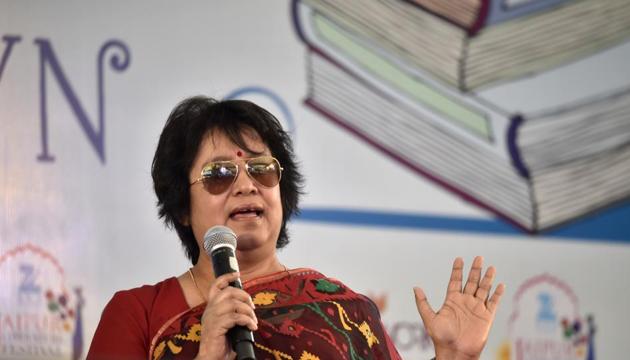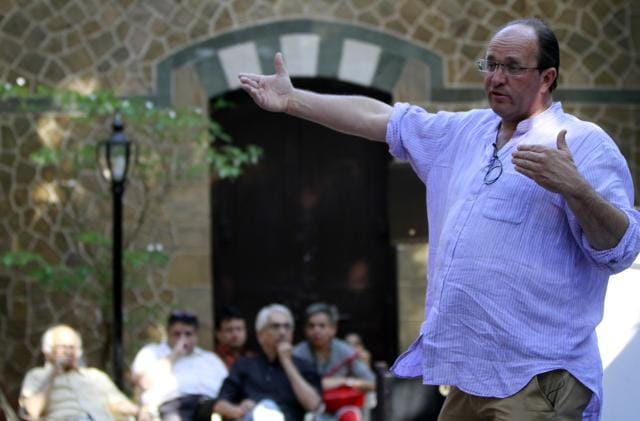On the cards at Delhi Literature Festival: demonetisation and nationalism
The fifth edition of the festival widens its scope beyond literature to include the stories that made headlines in the past year.
In a season of literature festivals, can the capital, New Delhi, be far behind? The three-day Delhi Literature Festival, which kicks off on February 10, promises the city its dose of books, complete with discussions, author interviews and cultural performances.

Now in its fifth year, the Delhi Literature Festival, or DLF, is one of many literary events that sprung up in the wake of the phenomenal success of the Jaipur Literature Festival (JLF). The latter’s transformation into a literary behemoth established a ‘market’ for such festivals: there was a sudden realisation that between the malls and the multiplexes, people had an appetite to discuss books and meet authors.
This year’s lineup at DLF includes well-known writers, such as Ashok Vajpeyi, William Dalrymple, Taslima Nasrin, Kamla Bhasin as well as bestselling authors Ravinder Singh and Ira Trivedi. DLF’s focus is on Indian authors, especially upcoming one, but its roster of names sounds familiar.
Does the-more-the-merrier charm work for literature festivals or is there a risk that a feeling of sameness will set in? “Let’s face it. Not everyone can go to the JLF. But everyone deserves a chance to become acquainted with good authors,” says Supriya Suri, one of the festival directors. “There are a lot of people who are first-timers and want to participate.”
Read more: Bangladeshi author Taslima Nasrin talks about life in exile

The Delhi festival has come a long way from its quiet beginnings at the Indira Gandhi National Centre for the Arts (IGNCA), with an audience that primarily consisted of senior citizens and students. Now the venue has shifted to Dilli Haat, a cultural and shopping hub in the city, to accommodate the growing crowds and the evolving character of the festival. “Dilli Haat is a very colourful, happening space,” says Nasir Jamal, also a festival director. “We felt there was a synergy between the spirit of the festival and the place.”
The festival pitches itself as a “people’s festival” and the organisers feel that moving beyond literature would only add to its character, not dilute it. “Our tagline is ‘aapka apna festival’,” says Jamal. “We don’t want to become exclusive. We want to cater to the common man.”
The organisers decided on the programme keeping in mind the issues that made headline last year. For every session about literature or poetry, there are panels on hot-button issues such as demonetisation and air pollution.
“We want people to discuss what’s happening around us, so that new ideas and thoughts emerge,” says Suri. “Discussing a topic like demonetisation will invite participation from the audience.”
If the mandate is to get audiences excited, the concluding session on Sunday with Tarek Fatah promises to be a cracker. Fatah, a Canadian writer of Pakistani origin and host of Zee News’ Fateh Ka Fatwa, is known for his Twitter fights and controversial views. He will be discussing the rise of right-wing nationalism around the world. The charged debate around the topic and Fateh’s divisive personality can make for a potent combination.
“We are a very neutral platform, we neither support nor disregard any one’s views,” says Jamal. “People are free to contradict, question and criticise but we should let everyone speak.”
Read more: Politics and literature at Delhi Literature Festival 2016
What: Delhi Literature Festival
When: February 10-11, 2 pm onwards; February 12, 1 pm onwards
Where: Dilli Haat, Sri Aurobindo Marg
Nearest metro station: INA
Entry is free





